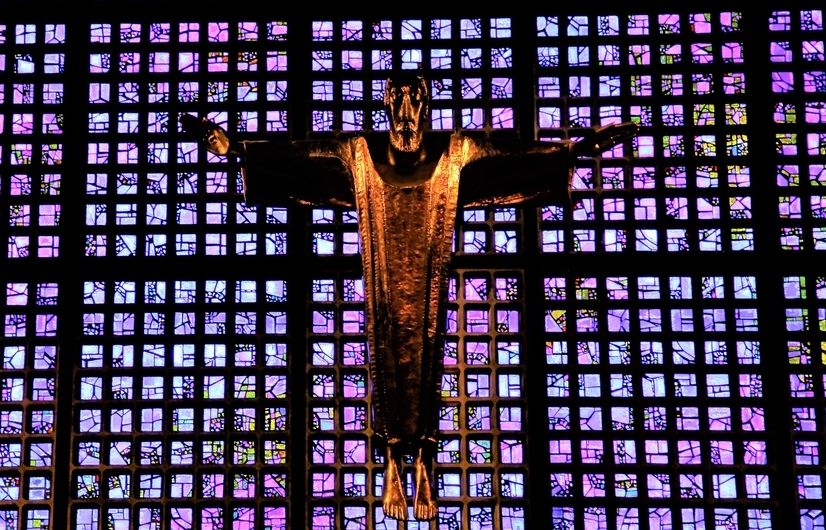Listening closely to the Mass prayers during Lent, we notice we are praying even more intensely in these 40 days for the gifts of heaven and eternal life.
For example, in one post-Communion prayer we pray that we might “merit to come and behold You forever.”
Throughout this season, we are praying to know the “things of heaven” and to be made “heirs to the joy of heaven.”
Lent reminds us that we are on a pilgrim journey through this life and that our home is in heaven.
I think we all understand that Jesus came down from heaven for our salvation. He is our Savior and he is the Savior of the world. But what does that mean? What does he save us from and how does he do it? And why do we need salvation in the first place?
These are the kinds of questions that prompted a new document issued last week by the Vatican’s Congregation for the Doctrine of the Faith.
“Placuit Deo” (Latin for “It pleased God”) is intended to help the world’s bishops to think about and address the issues that people today have about Jesus and salvation.
The document reflects Pope Francis’ concerns that our ideas and beliefs today are being influenced by a new “Pelagianism” and a new “Gnosticism.”
These were heresies in the early years of Christianity, but in a sense, these habits of thinking are as old as original sin.
Like the Pelagians, Adam and Eve tried to follow their own path in this world, as if they did not need God. We remember the story — how they chose to test what God had commanded, how they wanted to decide for themselves.
And like the Gnostics, our first parents also believed they had an “inside track,” a special wisdom imparted to them by the serpent that gave them a “shortcut” to becoming like God.
Of course, these heresies were more complicated than that. But the point for us is that these heresies express natural temptations, rooted in human weakness and original sin.
And none of us are above these temptations — they are part of the cultural air we breathe.
All of us are influenced by our culture’s emphasis on individual freedom and self-determination. This emphasis is amplified by our science and technology, which fills us with a sense of our own power to control the world around us and even our own bodies. We are all tempted to think we are smart enough and strong enough to live without God.
That is part of what the pope means by neo-Pelagianism.
We are also shaped by the “subjectivism” in our culture, which reduces everything to individual experience, personal judgment and opinion. In our culture, there are no truths or values outside of what we think and feel as individuals. You have your values and truths and I have mine.
What the pope sees as neo-Gnosticism is the tendency for us to think we can “make ourselves” and to dictate the terms of our personal relationship with God.
If we “feel” close to God, that is all that matters. Religion becomes something private; it is just you and your God.
These are important things for us to reflect on in this season when we are preparing to renew our baptismal vows.
Jesus saves. And his salvation is real. This is the beautiful truth of our religion. This is the hope we live by.
God sent his only Son into the world precisely because he knows that we cannot save ourselves.
Jesus comes as one like us in all things except sin. A human person like us and yet also God, he offered his life for you and for me. In dying and rising he opens for us a new relationship with God.
In baptism, we accept the gift of his salvation. We join our lives to his and we receive his Spirit. And we begin new lives with him, walking with him as children of God in his family, the Church.
Jesus does not save us privately or by ourselves. He saves us in history, in creation, in the real world that we live in. He saves us in the company of others. He is the salvation of all.
Jesus does not show us the way — he is the way. And when we make him the way for our lives, when we follow him in love and trust, we grow daily more and more in our likeness to him.
The new Vatican document quotes a line from the Second Vatican Council: “The ultimate vocation of man is in fact one, and divine.”
We are saved to share in Christ’s mission of love and mercy. And this journey continues until we reach the Father’s house in heaven, when we will see him face-to-face.
Pray for me this week, and I will pray for you. And let us look always to the intercession of Mary, the Mother of our Savior.
You can follow Archbishop Gomez daily via Facebook, Twitter and Instagram.

